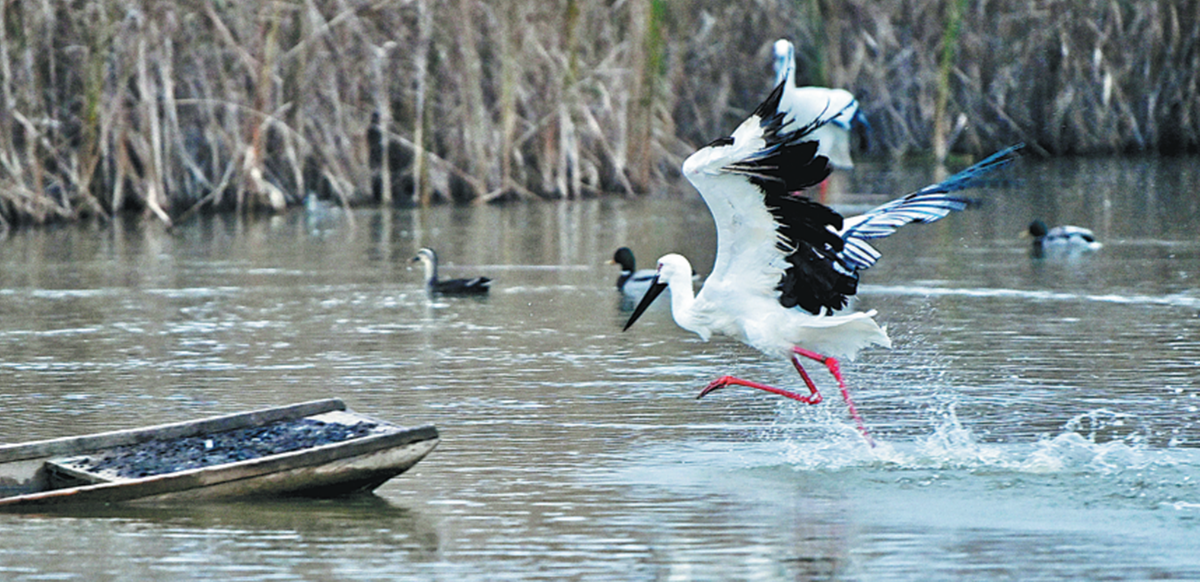Restored delta a haven for wild birds


JINAN-Various species of wild birds have started flocking to the Yellow River's estuary, thanks to environmental restoration efforts spanning two decades.
The Yellow River Delta National Nature Reserve in Shandong province covers about 153,000 hectares, with wetland making up over 70 percent of the total area. The reserve is an important wintering and stopover site for migratory birds.
Wang Andong, a researcher with the reserve, said 315 oriental storks, an endangered species, were born there this year. The species is under first-class national protection in China and is listed as endangered by the International Union for Conservation of Nature.
Wang said that, decades ago, the oriental storks only made brief stopovers at the reserve before they traveled to China's warm south, but an increasing number of the birds are choosing to live in the area throughout the year.
The reserve has seen the birth of 2,000 oriental storks since 2003 when the birds first nested and bred there, Wang said.
The conservation area has also seen a surge in the population of Saunders's gulls, or Chinese black-headed gulls, since the species was first spotted in the region in 1992. More than 8,600 Saunders's gulls reproduced there during this year's breeding season, according to a field study in June.
The increase in the number of wild birds in the reserve, especially endangered species, reflects the area's improved ecology, said Gou Hongshui, director of the reserve's administration committee.
Gou attributed the improvement to a number of wetland restoration projects, including replenishing water and turning farmland back into wetland.
A total of 155 million cubic meters of water was supplied to the reserve in July to replenish groundwater and slow down seawater encroachment.
Water replenishment, inaugurated in 2008, helps restore the wetland and creates a better environment for fish. It ensures enough food supplies for the birds, Gou said.
The rising number of wild birds in the reserve has become a boon for bird-watchers, who are able to spot oriental storks and other wild birds even outside the reserve.
Last year, a total of 57 pairs of oriental storks were found nesting and reproducing outside the reserve, said Shan Kai, deputy head of the Dongying Birdwatching Society.
Bird-watchers and volunteers from Dongying have also joined in efforts to protect the wild birds, Shan said.
Xinhua
- Long March 5 rocket deploys tech demo satellite into space
- China launches communication technology test satellite
- Spokesperson warns against aggression toward mainland fisherman
- Lhasa wetland reserve recognized as world's highest altitude wetland
- Chengdu woman sentenced for fatally stabbing neighbor
- Mainland coast guard's patrol in Xiamen-Kinmen waters to safeguard maritime order: spokesperson




































